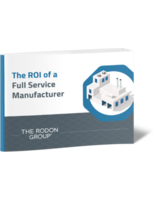FAA Demanded to Demonstrate benefits of equipage costs.
Press Release Summary:
Air Transport Association of America (ATA) issued statement in response to release of new FAA regulation requiring aircraft operating in U.S. airspace to be equipped with Automatic Dependent Surveillance-Broadcast Out (ADS-B Out) equipment. Taking into account FAA's cost estimate of 2.5-6.2 billion dollars, ATA President and CEO James C. May said that "ATA is carefully reviewing the ADS-B rule released today, and will have no further comment until that in-depth review is complete."
Original Press Release:
ATA Says FAA Must Demonstrate Benefits of $2.5-$6.2 Billion Cost For ADS-B Out Equipage Under New Rule
WASHINGTON - The Air Transport Association of America (ATA), the industry trade organization for the leading U.S. airlines, today issued the following statement in response to the release of a new Federal Aviation Administration (FAA) regulation requiring aircraft operating in U.S. airspace to be equipped with Automatic Dependent Surveillance-Broadcast Out (ADS-B Out) equipment:
"With an FAA cost estimate of between $2.5 and $6.2 billion, ATA is carefully reviewing the ADS-B rule released today, and will have no further comment until that in-depth review is complete. ATA has said repeatedly that any rule requiring this type of equipage and expense must be based on a solid business case in which the true benefits and real costs are fully understood and justified. We are hopeful that the FAA regulatory evaluation supporting the rule will be made available soon in order to help facilitate our review," said ATA President and CEO James C. May.
Annually, commercial aviation helps drive more than $1 trillion in U.S. economic activity and nearly 11 million U.S. jobs. On a daily basis, U.S. airlines operate nearly 25,000 flights in 80 countries, using more than 6,000 aircraft to carry an average of two million passengers and 50,000 tons of cargo.
ATA airline members and their affiliates transport more than 90 percent of all U.S. airline passenger and cargo traffic. For additional industry information, visit www.airlines.org. To learn more about oil speculation and its effects on the American economy, please visit www.StopOilSpeculationNow.com.




